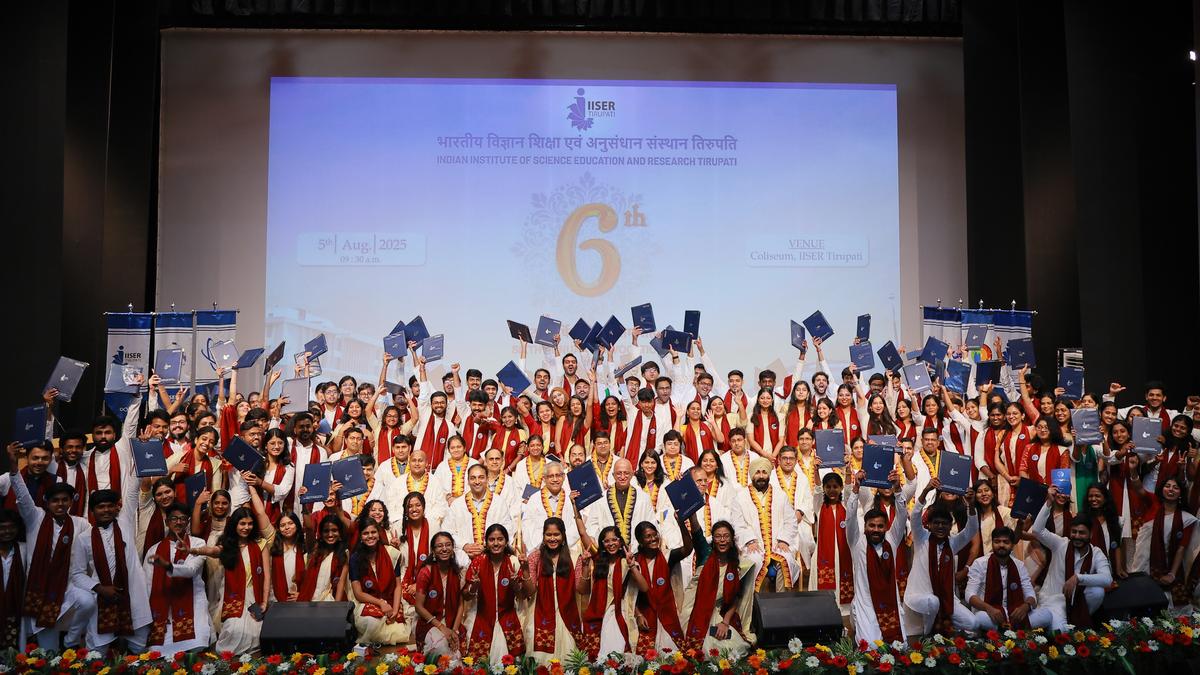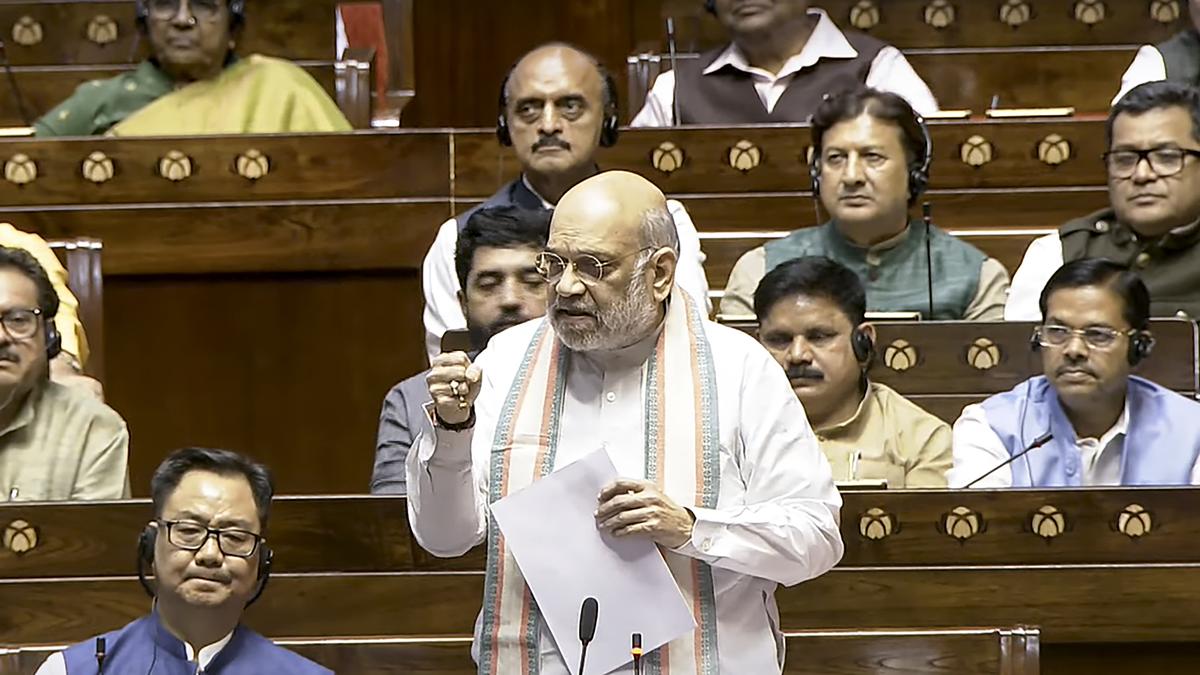Now Reading: Young Scientists Urged to Collaborate with Farmers at IISER Tirupati
-
01
Young Scientists Urged to Collaborate with Farmers at IISER Tirupati
Young Scientists Urged to Collaborate with Farmers at IISER Tirupati

Quick Summary:
- Event: Sixth convocation of Indian Institute of Science Education and Research (IISER), Tirupati held on Tuesday.
- Key Speaker: Samir somaiya, chairman of Godavari Biorefineries Ltd. and Chancellor of Somaiya Vidyavihar University.
– Urged India to transition from an oil-based economy to a soil-based one for environmental conservation.- Advocated collaboration between young scientists and farmers by integrating modern agricultural practices with traditional wisdom.
- Remarks by Jhillu Singh Yadav, Chairperson, IISER Board of Governors:
– Encouraged graduates to address critical issues in agriculture, sustainable chemistry, semiconductor manufacturing, and enzyme production.
– Stressed innovations that avoid environmental pollution for national advancement under the vision of ‘Viksit Bharat.’
- Degrees Awarded:
– A total of 255 degrees distributed including PhDs (22), Integrated PhDs (8), BSMS dual degrees (141), professional master’s degrees (69), MS degrees (3), six BS degrees, and six B.Sc degrees.
- IISER Director Santanu Bhattacharya presided over the degree distribution; Registrar inderpreet Singh Kohli delivered a trilingual vote of thanks in Hindi, Telugu, and English.
Indian Opinion Analysis:
The IISER Tirupati convocation marks an important event emphasizing the intersection between science education and practical submission in addressing India’s sustainability challenges. Key messages from speakers highlight a shift towards environmentally conscious economic models like transitioning to a “soil-based” economy. This resonates with India’s broader climate action goals while tapping into indigenous knowledge systems.
Samir Somaiya’s call for nurturing collaborations between scientists and farmers underscores the potential for innovation in agriculture-a sector crucial for india’s GDP. Similarly,Jhillu Singh Yadav’s emphasis on eco-friendly manufacturing solutions aligns with global trends in green technology growth.
By granting prestigious scientific degrees across diverse fields during this convocation, IISER reinforces its role as a catalyst for nurturing talent that could contribute meaningfully to national progress across sectors like agriculture technology innovation or sustainable industrial processes. Such moments signify both optimism and obligation as graduating scientists are encouraged to address pressing issues relevant not only locally but also globally.
For more information: Read More























